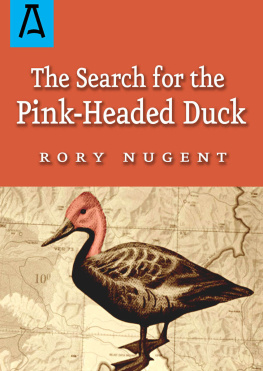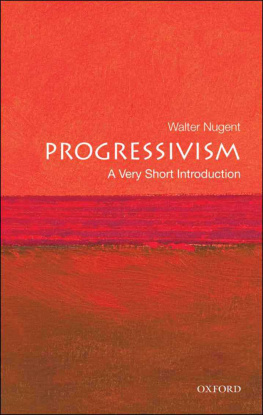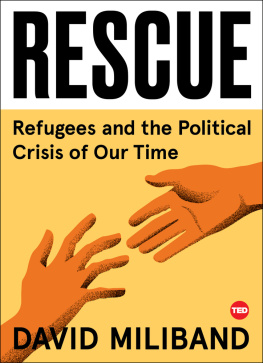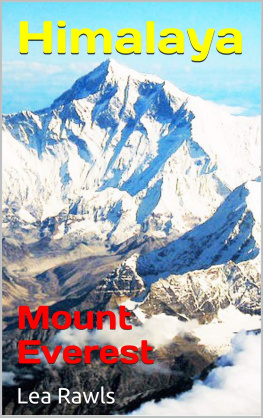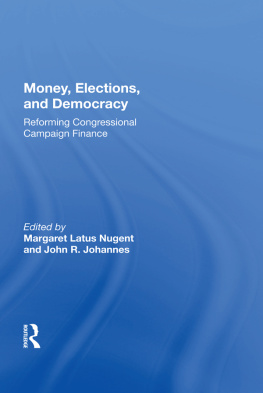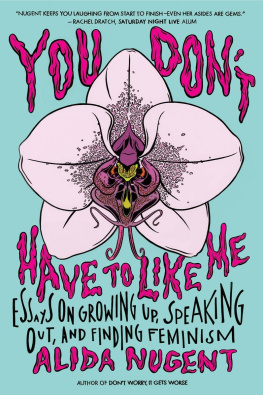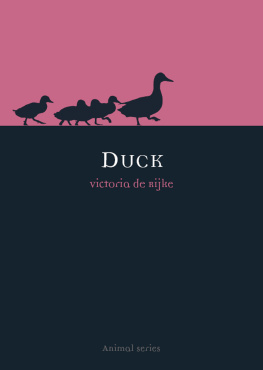Nugent - The Search for the Pink-Headed Duck: A Journey into the Himalayas and Down the Brahmaputra
Here you can read online Nugent - The Search for the Pink-Headed Duck: A Journey into the Himalayas and Down the Brahmaputra full text of the book (entire story) in english for free. Download pdf and epub, get meaning, cover and reviews about this ebook. year: 2016, publisher: Open Road Distribution, genre: Detective and thriller. Description of the work, (preface) as well as reviews are available. Best literature library LitArk.com created for fans of good reading and offers a wide selection of genres:
Romance novel
Science fiction
Adventure
Detective
Science
History
Home and family
Prose
Art
Politics
Computer
Non-fiction
Religion
Business
Children
Humor
Choose a favorite category and find really read worthwhile books. Enjoy immersion in the world of imagination, feel the emotions of the characters or learn something new for yourself, make an fascinating discovery.
- Book:The Search for the Pink-Headed Duck: A Journey into the Himalayas and Down the Brahmaputra
- Author:
- Publisher:Open Road Distribution
- Genre:
- Year:2016
- Rating:3 / 5
- Favourites:Add to favourites
- Your mark:
- 60
- 1
- 2
- 3
- 4
- 5
The Search for the Pink-Headed Duck: A Journey into the Himalayas and Down the Brahmaputra: summary, description and annotation
We offer to read an annotation, description, summary or preface (depends on what the author of the book "The Search for the Pink-Headed Duck: A Journey into the Himalayas and Down the Brahmaputra" wrote himself). If you haven't found the necessary information about the book — write in the comments, we will try to find it.
Nugent: author's other books
Who wrote The Search for the Pink-Headed Duck: A Journey into the Himalayas and Down the Brahmaputra? Find out the surname, the name of the author of the book and a list of all author's works by series.
The Search for the Pink-Headed Duck: A Journey into the Himalayas and Down the Brahmaputra — read online for free the complete book (whole text) full work
Below is the text of the book, divided by pages. System saving the place of the last page read, allows you to conveniently read the book "The Search for the Pink-Headed Duck: A Journey into the Himalayas and Down the Brahmaputra" online for free, without having to search again every time where you left off. Put a bookmark, and you can go to the page where you finished reading at any time.
Font size:
Interval:
Bookmark:
The Search for the Pink-Headed Duck
Rory Nugent
To William F. Gunkel and his crew aboard the Air Force plane that located me shipwrecked in the mid-Atlantic. Thank you, gentlemen, and thank you, Jim Angell, for laboring on the manuscript, acting as guide, editor, craftsman, and, above all, friend.
The five of us were talking about lost treasures that night, sitting around and trading stories. Whats still out there to find?
India is the place, Jim suggested. One of us should go after the pink-headed duck. It hasnt been sighted in years. Extremely rare the most elusive bird in the world.
The next day I went to the library and found several books that mentioned the bird, last seen fifty years ago in India. One book had a picture of the duck, and I stared at it for quite some time, dreaming, imagining myself learning its song. The image stayed in my mind; no matter where I was or what I was doing, the notion of searching for the lost duck was more interesting.
Two months later, my apartment sold and everything else in storage, I took a cab to Kennedy Airport and flew to India. What follows is the story of my search for the pink-headed duck as I recall it. I took notes throughout the journey, but I soon learned that imagination was the key to finding the prize.
The Calcutta Fowl Market
In this city where street signs are as rare as trees, I need some information. Ive been wandering about Calcutta for a day and a half looking for a pink-headed duck, but the only people who will talk to me are shop owners and hucksters trying to sell me something. Then, by chance, I happen upon the Calcutta Tourist Office.
Inside a kettle boils atop a stove, and the smell of Darjeeling tea scents the air. Three men in dhotis shuffle behind brooms, whisking them in a tired rhythm. The officials behind the reception desk appear preoccupied as they thumb through stacks of paper. As I touch a guidebook, a large man lifts his gaze to my face. His drooping jowls and double chin bury the knot of his tie.
Do you need help? he asks in an indifferent voice.
I sure do.
He nods, reaches into his coat pocket, and hands me a business card. His name is printed in Hindi and English but appears impossible to pronounce. I decide to call him Sir.
He motions for me to sit as I unfold a city map, the best one I could find. Yesterday, while searching bookstores, I discovered that maps of Calcutta are surprisingly inaccurate, missing streets, out of scale, and improperly oriented. Locals joke that the maps are a strategic ploy engineered by the army to confuse invading Pakistani generals.
Ah, here we are, the official says, puncturing the map, obliterating lower Park Street with the tip of his pencil.
He proceeds to point out the usual tourist attractions, which are all clearly marked: the Botanical Gardens, Howrah Bridge, Victoria Memorial, Calcutta Museum, and other places that hold little appeal for me. Finally he asks where I want to go.
Well, Sir, Im trying to find the fowl market.
He swallows hard and tugs a jacket button.
I repeat my request. He looks even more surprised. Shaking his head disapprovingly, he grabs a legal pad.
Name, he demands, narrowing his jet-black eyes.
Excuse me?
Name and passport. Hes breathing heavily now. I hand over the document.
Why do you want to go there? he asks. The market is notumm, how shall I sayit is not very clean.
I have to smile. Calcutta is anything and everything but clean. Built atop a swamp the Mogul emperor Aurangzeb gladly rented to the English in the seventeenth century, it may be the dirtiest metropolis on earth. Several feet of backfill have not been enough to bury all the muck on which Britain floated its empire.
The 1981 census lists the city population at nine million, but an official at the West Bengal Welfare Department laughs at that figure, considering it absurdly low. For every person living in a building, at least two people live on the streets. If hes right, Calcutta qualifies as the most populous city in the world.
The official finishes jotting down information from my passport and resumes his warning. What I meant to say is that the fowl market is not a safe place. I cannot recommend it.
I say nothing, which makes him nervous and even more suspicious. As I soon learn, people sitting behind state desks interpret reticence as disagreement.
You must answer me. Why do you want to go to the fowl market? he says loudly, glancing about the room to make sure his colleagues are watching. If Im arrested, he wants the others to know that he tried to discourage me.
Im looking for the pink-headed duck, Sir a very rare bird.
He scribbles something and begins tapping his head with the pencil. Who? Do you have an address?
I explain that the pink-headed duck has no address, at least not a permanent one. Though a half dozen or so appeared each year in the Calcutta fowl market when Victoria ruled as empress, the bird hasnt been sighted for fifty years. And Calcutta, hub of the raj, once the center of the pink duck trade, is the logical place to begin my search. I hope Ill find an old-timer in the fowl market who is familiar with the duck and can point me in the right direction.
The official covers his face with his meaty hands, muttering something I cant understand. I imagine him imploring Vishnu, the Hindu god of preservation, for protection. To calm him I pull out a 1979 edition of Salim Alis The Book of Indian Birds. The author is well known throughout India, and the book is published by the Bombay Natural History Society, keeper of all records concerning the pink-headed duck. I try to pass it to him, but he jerks his hand away and purses his lips. On page nineteen is a color illustration of the duck. Pointing to it, I explain that the pink-headed duck is one of Indias greatest treasures, a spectacularly plumed bird, and the rarest, most elusive duck in the world. This intrigues him, and he scrutinizes the plate. The birds Hindi name is glb-sr, but ornithologists refer to it as Rhodonessa caryophyllacea. The last confirmed sighting was in 1935 by a sportsman hunting in the Darbhanga area of Bihar. Unfortunately, he recognized the prize only after wresting it from the mouth of his retriever. Every attempt to breed the duck in captivity failed; in fact, within days of being caged, the birds appeared listless and refused food, defying the intentions of their captors. Without their freedom, pink-headed ducks, it seems, would rather be dead.
I explain that most naturalists believe the pink-headed duck is extinct, but my theory is that its actually in hiding, having learned, for good reasons, to remain scarce. Although most of its natural habitat around Calcutta has been destroyed, there are still some isolated pockets of undisturbed marshland in the Bengal plain and suitable nesting spots in remote northeast India.
The official remains silent but no longer appears alarmed. I keep up my chatter, hoping that he, too, will appreciate the magic of this beautiful bird. The words tumble from my mouth. At last my fantasy takes shape for him and elicits a laugh.
Youre putting me on, arent you?
No more than I do myself, Sir.
He returns to the map and traces an outline of the gamefowl market, which he refers to now as the easiest place to buy a bird in Calcutta. Handing the map back to me, he grins and says, At first, I thought you were a drug addict or a smuggler.
Heaven forbid!
Good luck, he says, pushing back his chair and rising. Hes taller and fatter than I suspected. He hands me another business card. Call me if you find it.
With ice a luxury, and refrigeration a symbol of wealth, Calcutta is a city of noxious odors. The fowl market is aptly named: I smell it long before sighting it. I wander along its perimeter, surveying the countless small shops and street vendors hawking birds. Most of the birds are tied at the feet and dangle upside down, suspended from door frames, street posts, or the hands of children; pigeons are cooped ten to a cage; geese, throttled by short lengths of twine, are muted with rubber bands.
Next pageFont size:
Interval:
Bookmark:
Similar books «The Search for the Pink-Headed Duck: A Journey into the Himalayas and Down the Brahmaputra»
Look at similar books to The Search for the Pink-Headed Duck: A Journey into the Himalayas and Down the Brahmaputra. We have selected literature similar in name and meaning in the hope of providing readers with more options to find new, interesting, not yet read works.
Discussion, reviews of the book The Search for the Pink-Headed Duck: A Journey into the Himalayas and Down the Brahmaputra and just readers' own opinions. Leave your comments, write what you think about the work, its meaning or the main characters. Specify what exactly you liked and what you didn't like, and why you think so.

